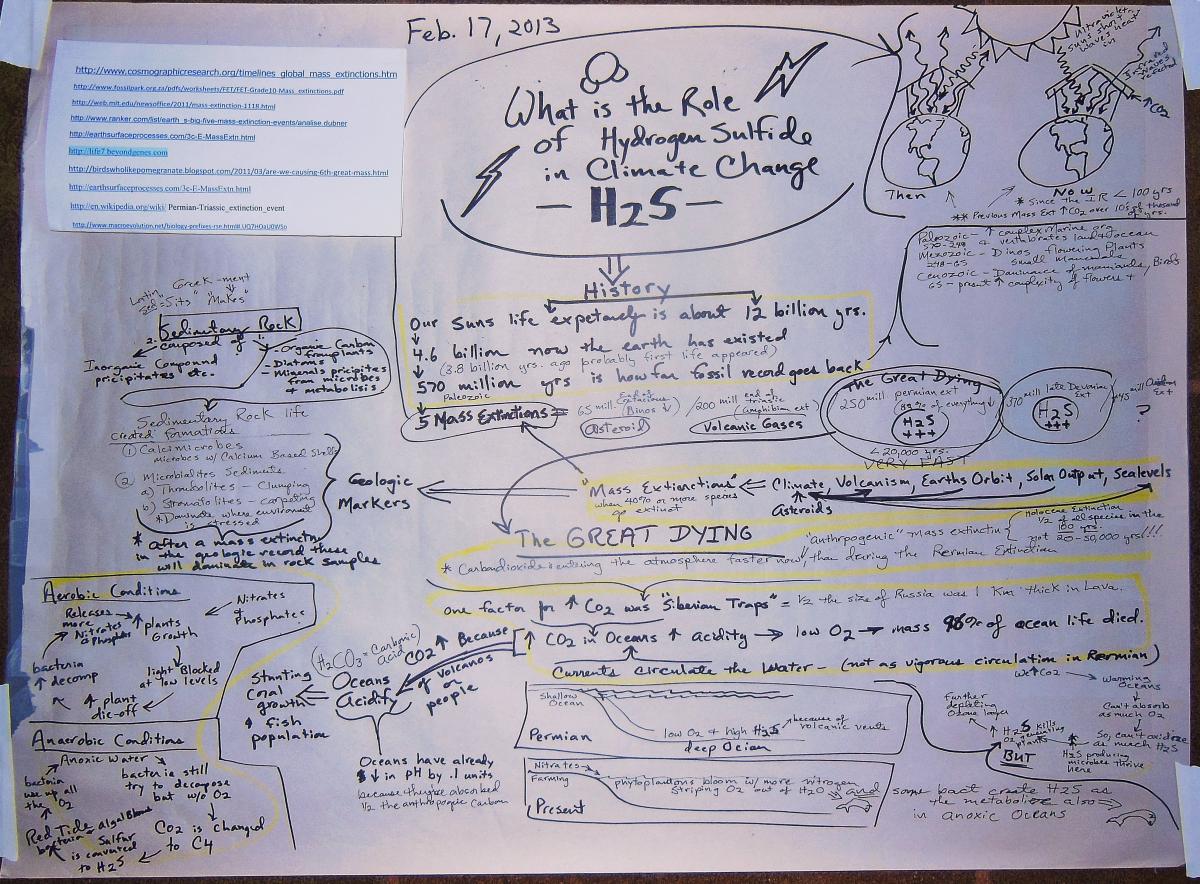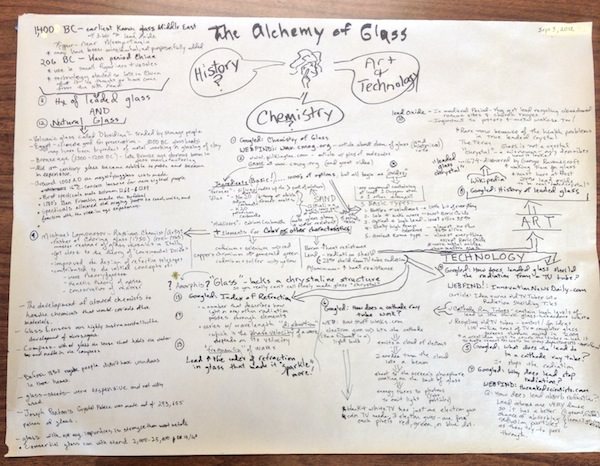What is Mind Mapping?
I have stumbled upon a new way for students to capture and document their lines of independent study called “Mind Mapping“. Though I stumbled upon this method myself, but I did not invent it. It is a well known organization technique that is becoming more popular by the day. This method blends the best of ol‘ school pen and paper, with cutting edge information technology. It is understandable to everyone, and can demonstrate depth of inquiry, proficiency, and perseverance. And best of all, it fits the “Student Directed Learning” concept that is becoming such a buzz-word in educational philosophy.
My “mind mapping“ was a natural off-shoot of the way my thought process works. For as long as I can remember, when I dive into a subject, my natural inclination is to follow lines of inquiry in all directions. I might start with a simple science query and end up in philosophy, history, AND mathematics. The inspired process seems to have no brakes when I start careening around corners of thought, down dark alleys, and taking unmarked on-ramps. Most of the time, I simply have to stop when I run out of paper!
And that brings me to the mechanics of this process... So when I am inspired to take on a question, I put a very large pad of paper (We are talking “ol‘ school“ newsprint here - Cheap and Cheerful!) and a marker on one side of the desk, and my laptop on the other. I will consider a question like “What does it mean to be ALIVE? Then I try to start processing the idea from at least three completely separate angles. In this case I chose to look at the question of life from the Philosophical (extraterrestrials?), Evolutionary, and Simple Biochemistry angles.
From there on out, I will just try to formulate and Google better and better questions. On my big sheet of paper, I record the places and concepts that I discover along the way and most importantly, when I come across a word or concept that I don‘t understand, I dive into that as far as time will allow.
And that‘s where the real rubber hits the road: Unless you are a passionate learner, it is really easy to run into barriers in this system and give up on a line of inquiry.
If you are not willing to push yourself into unfamiliar territory, over and over, then the mapping doesn‘t expand your envelop of knowledge. It‘s not something anyone can do for you, or should have to prod you to do. I think it just comes from a fire within.
In my first few weeks of high school, I happened to take a course on glass making at the Diablo Glass Studio in Boston, and that made me curious about the chemistry and history of glass. After creating the following mind map, I realized that I had everything I needed to produce two nice research papers: one to demonstrate proficiency in writing a full-fledged research paper, and another for a Science credit. So that‘s what I did!... (You can find those papers on my WebPages for those subject areas.)
I plan to use “mind mapping” as a foundational element of my Independent Study in the next 4 years. (At the time of this writing I am in the first semester of my freshman year of high school.) Technology will probably allow me to do this digitally - start to finish - eventually and I look forward to that in some ways. For now though, I look forward to the hours I devote to this kind of discovery. If you would like to see all my mind maps, in the order I have produced them, you can follow the link to my page called “Mind Maps”
As an aside,.. I tend to be very good at “Simultaneous Processing“ which is a clinical term for solving problems fluidly, regardless of the number or sequence of the parts to be considered. This was discovered quite by accident when I was in the first grade. You may have read on this website that I was born weighing only one pound and spent 4 months hanging on to life in the NICU. When I was six, my doctor was worried about my having learning deficits, so he recommended that my parents have my IQ tested in order get appropriate early tutoring. As it turned out, the tests discovered that I was fine and to everyone‘s amazement, they discovered that I had some unusual gifts (a IQ score of 144) in the area of Simultaneous Processing and other unusually high scores on the Kaufman Assessment. I am definitely NOT any better at “processing” the complexities of being a teenager like keeping my room picked up, and remembering to help with the dishes, but I do know that there”s something there that makes me love the process of learning, especially when it gets complicated.





